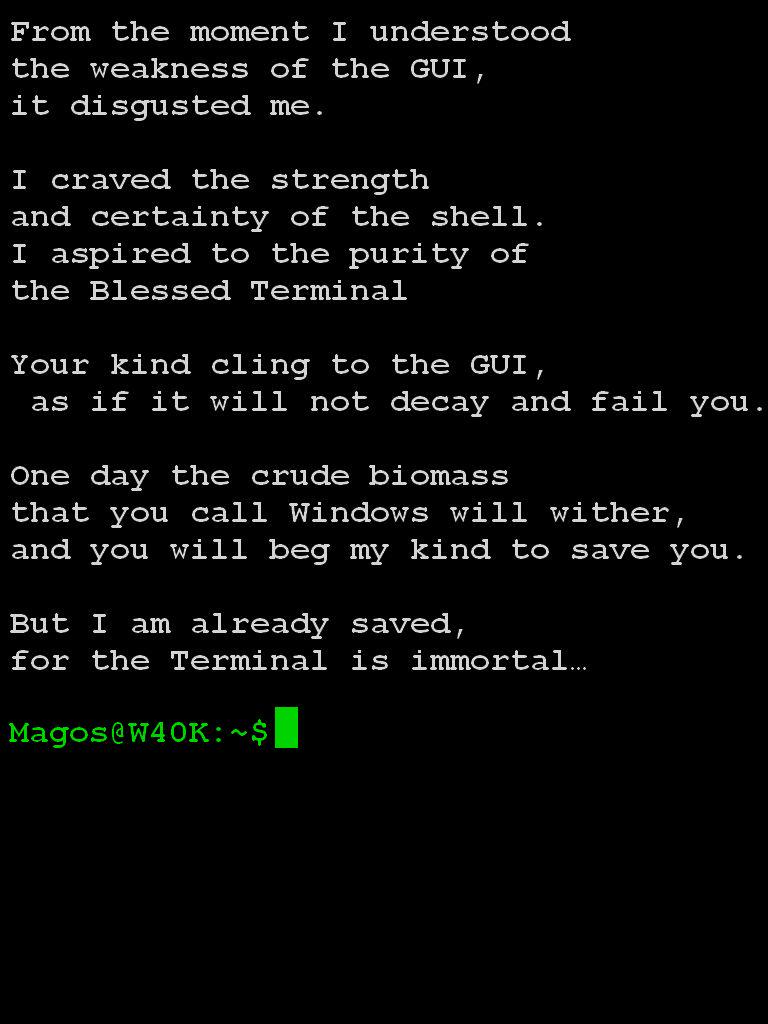LOOK WHAT THOSE GITS NEED TO MIMIC A FRACTION OF OUR POWER.
Sadly, Firefox mobile got rid of about:config, and I can't find any relevant options in the regular settings.
Apparently, 78 or 81 is a perfect age to run for President.
You can disable this "feature":
-
Visit about:config
-
Set "dom.private-attribution.submission.enabled" to false
Sure, but there's still no excuse for "store the password in plaintext lol". Once you've got user access, files at rest are trivial to obtain.
You're proposing what amounts to a phishing attack, which is more effort, more time, and more risk. Anything that forces the attacker to do more work and have more chances to get noticed is a step in the right direction. Don't let perfect be the enemy of good.
No, defense in depth is still important.
It's true that full-disk encryption is useless against remote execution attacks, because the attacker is already inside that boundary. (i.e., As you say, the OS will helpfully decrypt the file for the attacker.)
However, it's still useful to have finer-grained encryption of specific files. (Preferably in addition to full-disk encryption, which remains useful against other attack vectors.) i.e., Prompt the user for a password when the program starts, decrypt the data, and hold it in RAM that's only accessible to that running process. This is more secure because the attacker must compromise additional barriers. Physical access is harder than remote execution with root, which is harder than remote execution in general.
I saw that happen once in a big presentation.
There was a team of students presenting their work to ~200 people. Right in the middle, a pop-up says updates are finished and the computer needs to restart. It has a helpful 60-second countdown, but "cancel" is grayed out, so all they can do is watch.
I was only in the audience and I still have nightmares.
Finally, OJ can rest knowing his wife’s killer is dead.
My head canon is that Tony Stark has a superpower: everything he builds works the first time.
If it's really complicated, like an entirely new Iron Man suit, then it might malfunction once in an amusing way. Then he tightens a screw and it's perfect. It never fails outright or bricks itself.
In my experience, this is not how hardware or software development goes. I want this power so much.
Want to upgrade your F-91W? The open-source Sensor Watch is a board-swap that uses the same display, housing, and wrist-strap but lets you program your own functionality.


I assume this guide is for engaging the F-117 in midair hand-to-hand combat after you've leapt aboard. But in that case, where are you supposed to get dirt? Bring it with you, like some kind of peasant?? Just use your sword like a normal ninja.